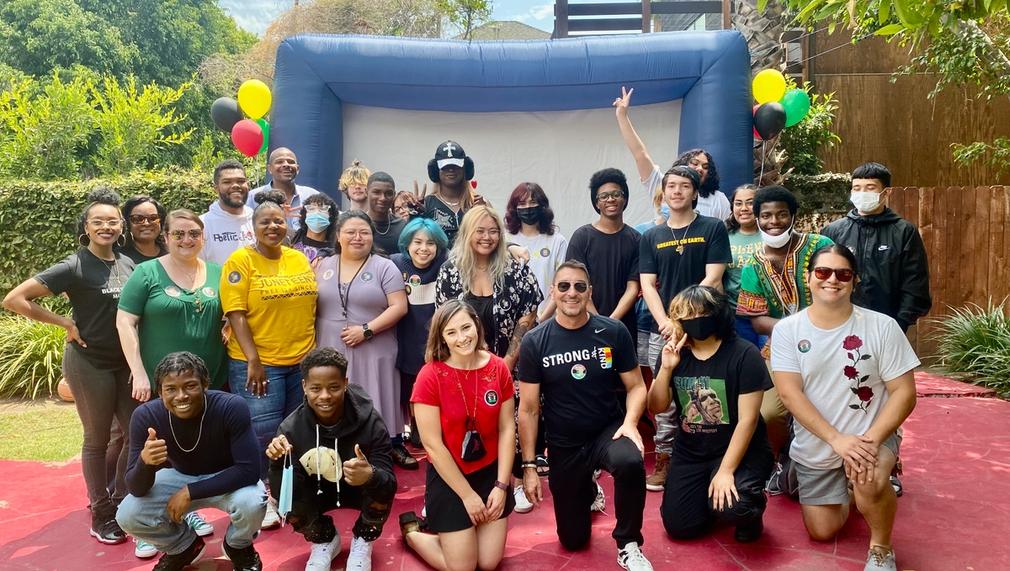Staying Strong - Preventing Homeless Recidivism Among Youth
The proposed grant will support YES’s Staying Strong Program, which prevents homeless recidivism among formerly unhoused youth, including those impacted by the foster and juvenile justice systems. Staying Strong provides YES’s comprehensive case management and mental health services after a youth has transitioned from our supportive housing to the community. This extension of services prevents future challenges from becoming long-term crises and increases the likelihood that our clients will achieve and sustain financial stability.

What is the primary issue area that your application will impact?
Affordable housing and homelessness
In what stage of innovation is this project, program, or initiative?
Expand existing project, program, or initiative (expanding and continuing ongoing, successful work)
What is your understanding of the issue that you are seeking to address?
Homelessness in Los Angeles impacts not only the unhoused individuals who wrestle with survival on a daily basis, but our entire community. Two primary issues continue to drive that crisis: the lack of affordable housing and a critical shortage of comprehensive supportive services. For older unhoused persons particularly, stakeholders must be equipped to address individuals’ long histories of economic instability. But those serving younger cohorts, which disproportionately includes those impacted by the foster and juvenile justice systems, have a different charge. Unhoused youth are homeless through no fault of their own, and while their histories might reflect risk factors, such as poverty, that have spanned generations, their futures do not have to be defined by persistent challenges. Rather, they can begin to establish their economic stability today, and so their hope for the future – to attain and maintain adult self-sufficiency – should be recognized as realistic.
Describe the project, program, or initiative this grant will support to address the issue.
YES’s Staying Strong program was designed to end the cycle of homelessness for the individual youth we serve. When a youth enters one of our supportive shelters, they arrive with histories of trauma and few, if any, positive connections. We immediately address their needs in key areas—mental health, education, employment/income, life skills/self-care—and as our case management staff works with the youth, a trust is established that allows the youth to reframe their pasts and re-imagine their futures. They learn to believe that their most passionate interests can be parlayed into a living-wage job. Or they envision themselves as college material for the first time in their lives. They also begin to interact with others in the community who can help them realize their goals for adult self-sufficiency. These positive connections—with YES staff and with individuals/agencies in the community—are essential to sustaining the healthy trajectories that are begun while in shelter, and YES’s Staying Strong program guarantees those connections will be cultivated. Our commitment to each youth is for 5 years—most often, 1-2 years in shelter and 3-4 years in the community—and because of that commitment, we are able to work with youth as they confront the challenges that young adults often face. By sticking with them through these early years of their independence, we prevent challenges from becoming crises. We prevent the youth we serve today from becoming the adult homeless of tomorrow.
Describe how Los Angeles County will be different if your work is successful.
Every currently unhoused youth who does not later experience adult homelessness represents a better future for Los Angeles, and YES’s intended impact is to reduce homeless recidivism, one youth at a time. Our approach is individualized, and our effectiveness is witnessed in individual growth and ultimate self-sufficiency. For the youth who benefit from our 5-year commitment and the Staying Strong program that sets us apart from other agencies, the short-term impact will be a positive sense of the future as they work with their case management team to address mental health issues, identify and realize educational and employment goals, and learn and practice the types of life skills that result in everyday independence and self-sufficiency. In the long term, those immediate impacts will lead to fulfilling lives free of crisis and sustained by individuals and resources that support realistic goals. By serving every youth who transitions from YES housing, Staying Strong expands by design.
What evidence do you have that this project, program, or initiative is or will be successful, and how will you define and measure success?
We measure impact through youth-directed Individualized Service Plans (ISPs) that are introduced at intake and then guide programming through the articulation and revisiting of monthly SMART goals in six key areas: education, employment/income, life skills, mental health, permanency, and self-care. We’ve witnessed success as youth obtain their high school diploma or GED and then go on to a 2- or 4-year institution, often the first in their family to do so. We’ve witnessed success as youth complete paid internships, in the process honing employable skills they didn’t know they had. We’ve seen youth save thousands of dollars to create the nest-egg that will help them through unknown future challenges. We’ve watched as youth redefine relationships with family members who were previously unable to provide emotional support. But these developments must be fortified through ongoing, substantive support, and Staying Strong’s long-term structure effectively delivers lasting impacts.
Approximately how many people will be impacted by this project, program, or initiative?
Direct Impact: 250.0
Indirect Impact: 1,000.0